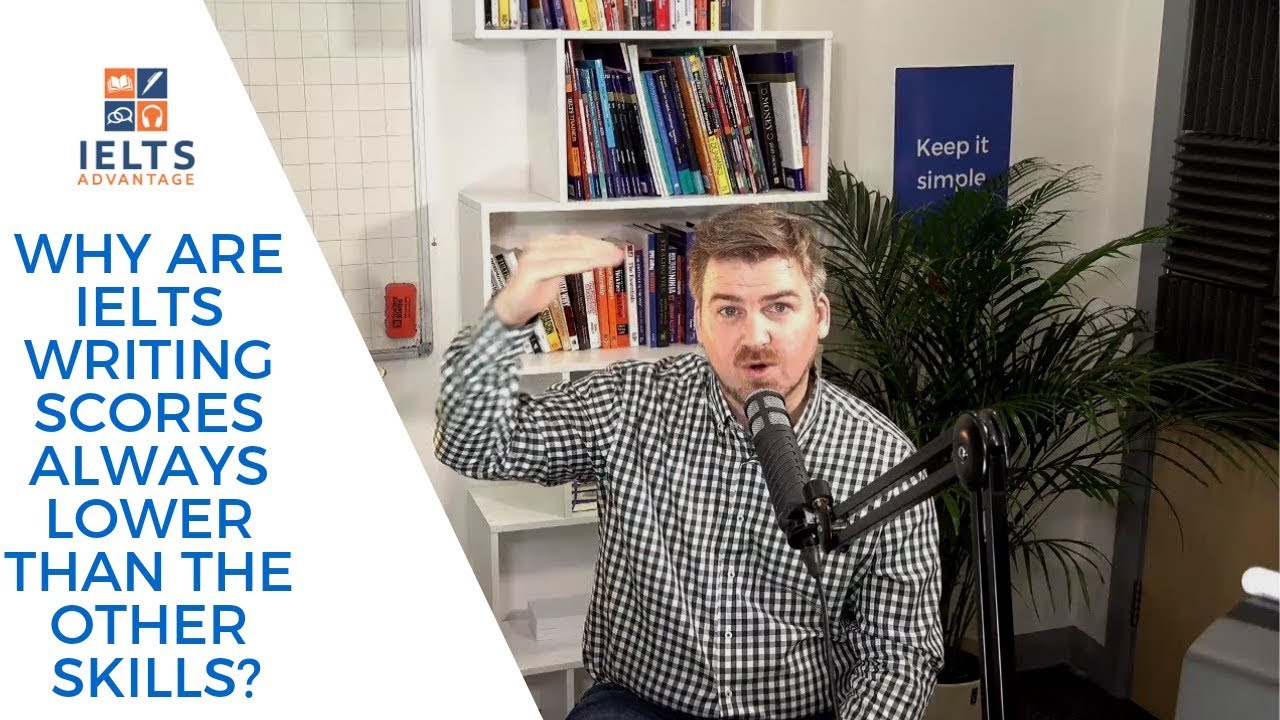IELTS VIP Podcast Episode 14: How to Develop Main Ideas in IELTS Writing
Summary
TLDRIn this IELTS VIP podcast episode, Chris from IELTS Vantage focuses on developing main ideas for IELTS Writing Task 2. He introduces a three-step process to help students create clear and concise main ideas. The steps include: 1) generating a relevant, specific idea that answers the question, 2) explaining the main idea in a simple way as if to a 10-year-old, and 3) providing evidence to support the idea. Chris emphasizes the importance of simplifying responses and avoiding overcomplication, as the goal is effective communication in English.
Takeaways
- 📝 The podcast focuses on developing main ideas for IELTS Writing Task 2, emphasizing its importance for a high score.
- 🔑 A three-step process is introduced to help students develop clear and relevant main ideas.
- 🤔 The first step is to think of a specific idea that is both relevant and straightforward, considering what the majority would think.
- 📈 The second step involves explaining how the main idea answers the specific question in simple terms, as if explaining to a 10-year-old.
- 🔍 The third step is to provide evidence or examples to support the main idea, as if proving a point in an argument.
- 📉 There's no list of 'Band 9' or 'Band 8' ideas; the focus should be on ideas that answer the question effectively.
- 📋 The topic sentence should clearly state the main idea of the paragraph, which varies with different question types.
- 🚫 Avoid writing general or unrelated content; ensure every sentence supports and explains the main idea.
- 💡 The technique aims to simplify the writing process, as the IELTS test is about effective communication, not complexity.
- 🌟 The goal is to make the main idea clear and understandable to the examiner, demonstrating understanding and support with evidence.
- 📢 For further assistance, students are directed to the IELTS Vantage website for more resources.
Q & A
What is the main focus of the IELTS VIP podcast episode mentioned in the transcript?
-The main focus of the IELTS VIP podcast episode is on how to develop main ideas for IELTS writing task 2.
Why are main ideas considered important in IELTS writing task 2?
-Main ideas are crucial because they are the most important aspect of IELTS writing, especially for those aiming for a score of 7 or above.
What is the first step in developing main ideas as suggested in the podcast?
-The first step is to think of a relevant, specific idea that answers the question by considering what the majority of people would think.
How does considering what 100 people would think help in developing a main idea?
-It helps in coming up with the simplest and most straightforward idea that is easy to explain and develop.
What is the purpose of a topic sentence in IELTS writing task 2?
-A topic sentence states the main idea of the paragraph and varies depending on the type of question being addressed.
Why is it important to explain how the main idea answers the specific question?
-It ensures that the idea directly addresses the question and is not general or unrelated, which is a common issue among test-takers.
What is the second step in the three-step process for developing main ideas?
-The second step is to imagine explaining the main idea to a 10-year-old who knows nothing about the topic, which forces the writer to simplify and thoroughly explain the idea.
What is the third step in the process and why is it necessary?
-The third step is to provide evidence to support the main idea, which is necessary to convince the reader of the validity of the argument.
How does the podcast suggest simplifying the writing process for IELTS task 2?
-The podcast suggests simplifying the writing by focusing on clarity and straightforwardness, as the test is about effective communication in English, not complexity.
What is the ultimate goal of the three-step process for the examiner reading the main body paragraph?
-The goal is for the examiner to clearly understand the main idea, see that the question has been understood, and recognize that the main idea is supported with evidence.
Where can listeners find more information or resources related to the podcast's content?
-Listeners can find more information and resources on the website IELTS Advantage.
Outlines

Cette section est réservée aux utilisateurs payants. Améliorez votre compte pour accéder à cette section.
Améliorer maintenantMindmap

Cette section est réservée aux utilisateurs payants. Améliorez votre compte pour accéder à cette section.
Améliorer maintenantKeywords

Cette section est réservée aux utilisateurs payants. Améliorez votre compte pour accéder à cette section.
Améliorer maintenantHighlights

Cette section est réservée aux utilisateurs payants. Améliorez votre compte pour accéder à cette section.
Améliorer maintenantTranscripts

Cette section est réservée aux utilisateurs payants. Améliorez votre compte pour accéder à cette section.
Améliorer maintenantVoir Plus de Vidéos Connexes

IELTS VIP Podcast: Why Are IELTS Writing Scores Always Lower Than The Other Skills?

IELTS VIP Podcast Episode 15: How Planning Can Help You Get the IELTS Score You Need

IELTS VIP Podcast Episode 13: How Can I Improve my Fluency in the IELTS Speaking Test?

How To Get Band 9 in IELTS Writing Task 1 Academic

IELTS VIP Podcast: How to Write IELTS Essays Like a Native English Speaker

IELTS VIP Podcast Episode 10: Should I Get my IELTS Test Remarked?
5.0 / 5 (0 votes)
